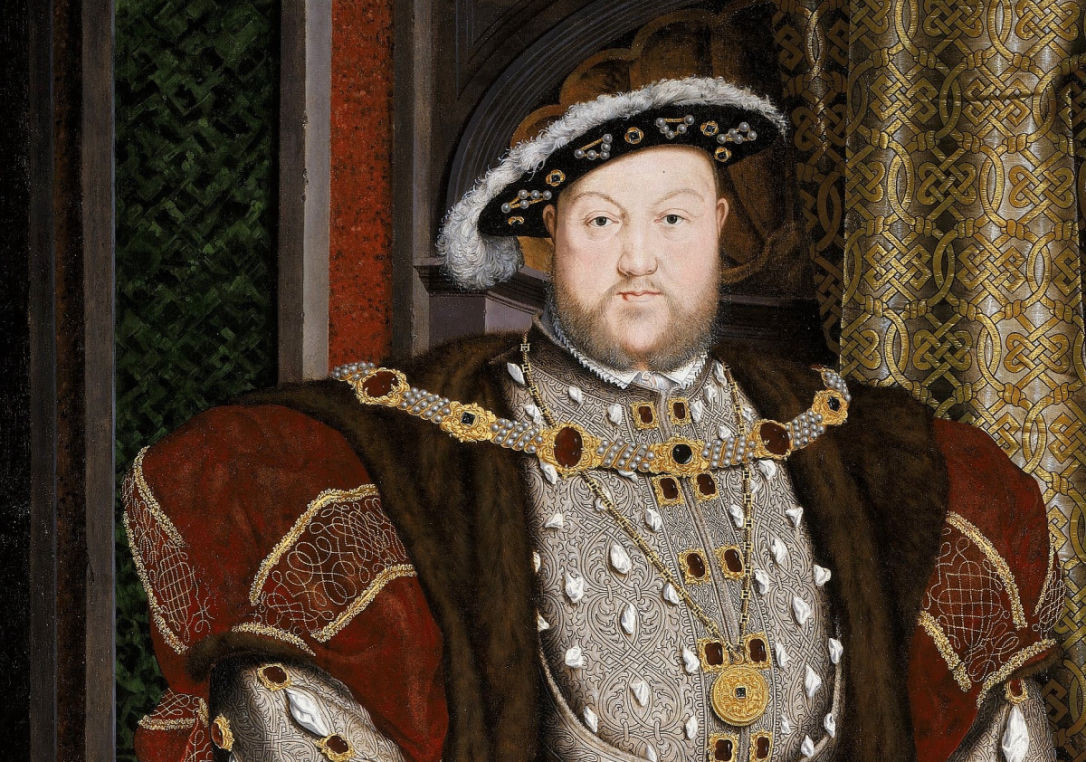



Henry VIII - The Break With Rome 3
The break from Rome also had the following
effects:
■ Revenue – it gave Henry the
wealth of the Roman Church in England
■ Dynastic security – heirs to
thrones. If no male heir was produced,
Henry
could marry another wife
■ Control of the Church - and the power of the Church to influence The People
■ Power - greater control over the destiny of England
These were the main political causes for
the break with Rome:
■ Henry’s need for revenue
■ Henry’s conscience
■ Henry’s desire for a male heir
■ Henrys desire for power
■ Thomas Cromwell
■ Role of the Boleyn faction
Thomas Cromwell, 1st Earl of Essex was an
English lawyer and statesman who served as chief
minister to King Henry VIII of England.
Cromwell made enemies, including Anne Boleyn. He played a powerful role in her downfall.
(He also fell from power, after arranging the
king's marriage to Anne of Cleves. Henry found his new bride unattractive, which
was a disaster for Cromwell, ending in an
annulment six months later. Cromwell was charged
and executed for treason and heresy.) The king
later expressed regret at the loss of his chief
minister.
There are two main schools of thought (points
of view, based on research) about the events in
the Reformation:
■ Events were made to happen by the elite
(orthodox (normal) view) From
the ‘bottom up’:
■ Events were made to happen by the population
(heterodox
(not the usual) view).
The people who encouraged the break with
Rome.
Anne Boleyn:
■ Anne was strongly influenced by Martin Luther’s ideas and strongly believed in ‘reformed’ ideas
She used her unique position with Henry to:
■ influence Henry by exposing him to Protestant
ideas of writers
■ promote key figures in the reform movement
such as Cranmer, to Archbishop of
Canterbury
Thomas Cranmer:
■ Thomas Cranmer was an important scholar and
writer
■ Before he became Archbishop of Canterbury, he
helped to write a book which made the case for
Henry being an emperor
■ As Archbishop, he helped to write the “Ten
Articles” a book which gave the English Church
theological direction
■ He was also politically important, as he was
capable of radical action such as marrying Henry
and Anne in secret, and later divorcing him from
Catherine while also promoting the reform at an
acceptable and realistic pace
Cromwell:
■ He had great political ability and was ruthless
■ Before Cromwell, the divorce campaign stalled
– he provided fresh ideas and drive
■ Strategy: Cromwell managed to guide a course
through use of Parliament – he sidestepped
Henry’s conservative councillors
■ Legality: Cromwell produced laws that gave
the legal framework and justification for the
break with Rome
■ Organisation: as Vicegerent in Spirituals,
Cromwell presided over key steps as the
introduction of bibles written in English
Why were Henry’s marriages
important?
Henry’s marriages were extensive, tumultuous, and controversial, and they were directly related to policy changes during his reign. King Henry VIII’s first marriage to Catherine of Aragon happened when he was 17 years of age. Shortly after the marriage, Catherine had a stillborn girl; however, a few months later baby Henry, named after the King, was born. The healthy state of the newborn was met with celebrations, but seven weeks after the birth the baby died. Catherine had another miscarriage and another infant death, but then in 1516, Princess Mary was born to the royal family.
1: Catherine of Aragon
After unsuccessful pregnancies, Henry VIII
began having extramarital affairs with two
mistresses: Elizabeth Blount and
Mary Boleyn. Elizabeth Blount also
conceived Henry’s child, who was later given the
title “Duke of Richmond” (Henry Fitzroy), who
died before having the opportunity to be
possibly recognized to be next in line for the
throne. As he became more and more disillusioned
with his Catherine of Aragon, King Henry VIII
pursued Mary’s sister Anne Boleyn, who
was a Lady-in-Waiting to Queen Catherine at the
time.
This relationship with Anne developed into
Henry’s second marriage. However, in order to
become married to Anne, his marriage with
Catherine had to be annulled. King Henry VIII
appealed directly to Pope Clement VII claiming
that Catherine and his brother consummated their
marriage: Henry could not marry his brother’s
wife. Catherine denied the accusations, and
discussions went on for many years - where the
Pope stated that a new marriage should not occur
unless a verdict was given from Rome. The Pope
chose not to annul the marriage right
away.
2: Anne Boleyn
During this period many changes occurred in English religion, which became a part of the English Reformation. Without the guidance of Cardinal Thomas Wolsey, Anne, as well as others, who were not supporters of the theology from Rome, influenced King Henry VIII. One action taken against the clergy in England forbade them from following orders from a foreign country or powers, such as Rome. Another event was when Henry was granted “Royal Supremacy”, so that canon law (religious teaching) could not be made unless there was permission from the King. Various other provisions were enacted that distanced the Church of England from Rome. Most importantly, the “Acts of Supremacy” were made, which stated that King Henry VIII was the supreme head of the Church of England on Earth which also encouraged the break with Rome.